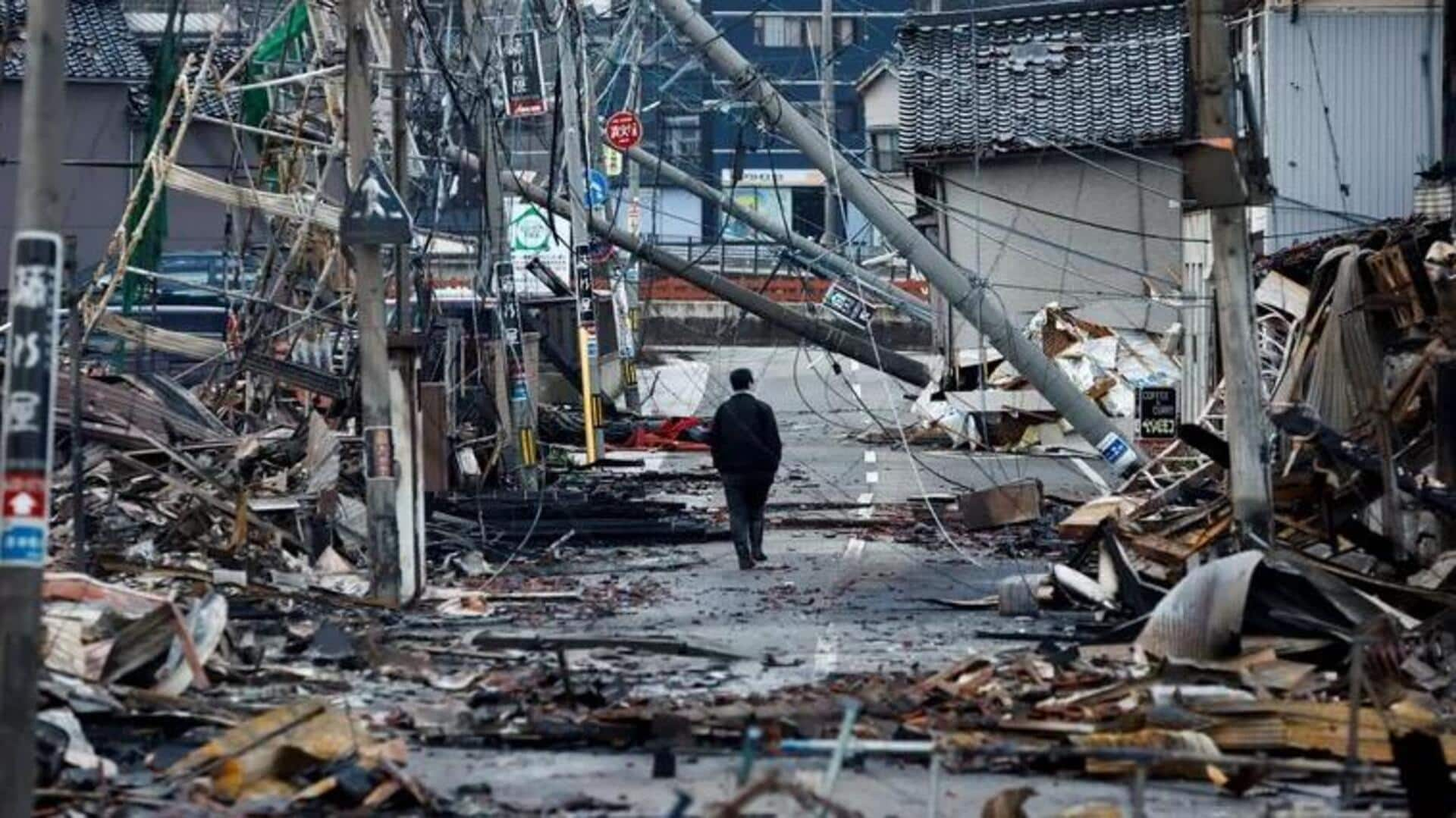
5.5-magnitude earthquake strikes Japan's Kyushu region
What's the story
A magnitude 5.5 earthquake struck Japan's Kyushu region on Tuesday, the German Research Center for Geosciences (GFZ) reported. The quake occurred at a depth of 10km. This comes after an offshore earthquake of magnitude 6.9 rattled northern Japan earlier this month, prompting a tsunami advisory for Iwate prefecture. The tsunami advisory was lifted about three hours after the initial quake, but the meteorological agency warned that the area was at risk for strong quakes for about a week.
Historical context
Japan's history of devastating earthquakes
Japan is located on the western edge of the Pacific "Ring of Fire," making it one of the most seismically active countries in the world. The country experiences around 1,500 earthquakes every year, most of which are minor. However, damage depends on location and depth. In 2011, an undersea earthquake with a magnitude of 9.0 struck the region, triggering a tsunami that killed or left about 18,500 people missing.
Nuclear disaster
2011 earthquake's impact on Fukushima nuclear plant
The 2011 earthquake also caused three reactors at the Fukushima nuclear plant to melt down. This incident is considered Japan's worst post-war disaster and the world's worst nuclear accident since Chernobyl. More than 10 years later, people still remain displaced from the no-go zone. Demonstrations continue to be organized on a regular basis, as recently as this month, to oppose what is perceived as the authorities' failure to recognize the major risks of nuclear power.